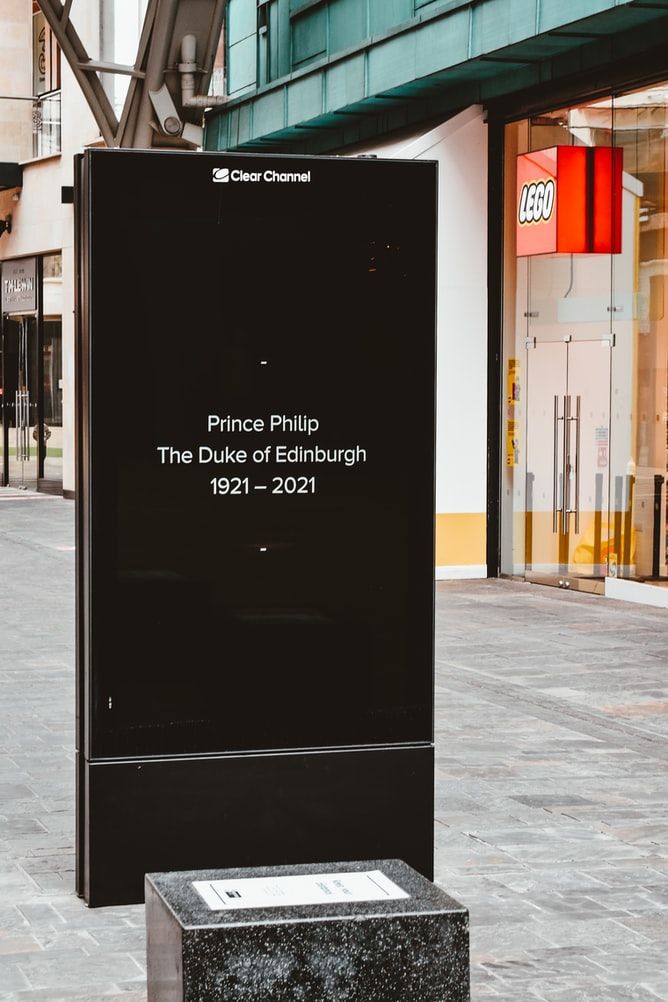Following The Passing Of Prince Philip:
Losing The One You’ve Loved The Longest
This week we learned of the sad passing of Prince Philip at the age of 99, and whatever your feelings are about the Royal Family, your thoughts are probably with The Queen, and how her life will change now that the man who stood by her side for over 70 years is gone.
We have touched previously on how the death of a spouse affects those with Alzheimer’s, but what about those who, like The Queen, have full cognitive health, and now have to navigate the rest of their life without the person who has been the biggest part of it. Elderly people who are in good health might not be offered the same support or understanding after the death of a spouse as those who aren’t, and it can be a very lonely and worrying time.
Of course, The Queen comes from a world of great privilege, where worries about housing and finances that a lot of elderly people will experience following the death of spouse aren’t an issue – but that doesn’t mean that the very raw feelings of loss and confusion aren’t just as real as would be experienced by you or I.
Prince Philip lived a very long and full life, you might even say that he had a ‘good innings’, but just because someone’s life hasn’t been cut short early – or even that their death may have been expected – that the grief felt by those who loved them is diluted somehow. The death of a spouse is a life-shattering experience, and the psychological effects are obvious, but grief can also have physical effects, such as loss of appetite and sleeplessness – and for the elderly this can also mean that their immune system is affected and they can lose interest in taking care of themselves. This explains why the health of a lot of older people can decline following the death of a spouse, and why it’s not uncommon for some to pass away shortly after losing their partner. The stress caused by their loss can result in stress cardiomyopathy – often known as broken heart syndrome.
The Queen, like many other elderly people who have lost their spouse will no doubt gradually adapt to life without her beloved Philip, but there are many challenges she and others may face along the way.
A Loss Of Independence
For The Queen this may not actually be one of them, but for an elderly couple who are frail or ill they may have been able to compensate for one another and maintain strength and dependence as a unit – each making up for the other’s shortcomings. For example, a husband with limited mobility might rely on his wife to help him get in and out of bed, or to carry shopping…..a wife with memory loss or dementia might rely on her husband to remind her to take medication, or to make sure that bills are paid on time.
If one half of the couple dies, the surviving spouse might not be able to manage on their own.
Taking On New Responsibilities
Perhaps, like The Queen, the surviving spouse is in good health – but maybe, as a couple, they both had well-defined roles within their relationships. It’s not uncommon for older people to follow traditional, older-fashioned gender roles – for example they may be a lot of elderly men who have never had to cook a meal, or wash their own clothes, or a lot of older women who never managed the money or paid bills.
If one half of the couple passes, the other may find themselves suddenly having to acquire new skills – which might be incredibly overwhelming during a period of grief.
Feeling Isolated
For older couples who are living independently rather than in assisted living, the loss of a spouse means being plunged into isolation. Older couples rarely have a wide social network outside of each other, and so unless they happen to be living within a community with other older people, it can suddenly feel very lonely. They have lost the person who was by their side through every meal, walk and event for perhaps 50, 60, 70 years…..they might find themselves going to sleep and waking up alone for the first time in decades. A usual routine might become neglected, which could lead to a downward spiral of depression.
Even if the couple have children and grandchildren, they are unlikely to want to be a burden, and after the initial support and care it’s likely that life will return to normal once the initial shock and period of grief has passed – there are jobs and school to attend and relationships to maintain after all. Life goes on.
But for someone who has lost the person that they’ve loved the longest, life won’t be the same again…they might be angry at the world, frightened. Lost. If there is an elderly person in your life who has lost a spouse, remember to always be compassionate; the person they chose to go through life with is suddenly gone, and for them nothing will ever be the same again.
For an older person who is struggling following the loss of a partner, at-home care can help – with chores, running errands, helping with self-care, or even just offering a friendly ear and some company. If you know someone who is elderly and would benefit from some extra help after losing their life-long partner, please give Care In Kent a call.


